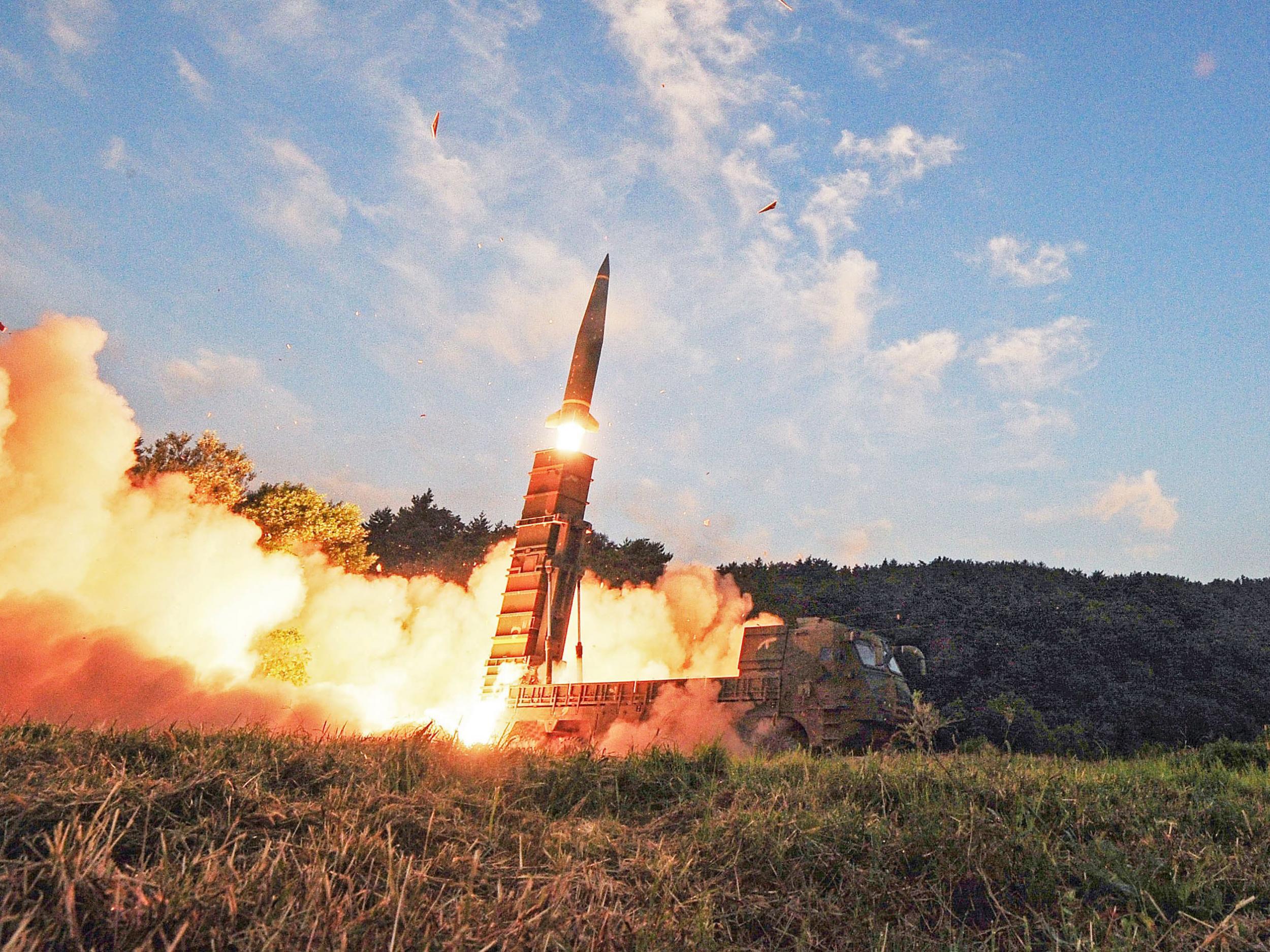Russia says it will react to US missile expansion in South Korea
'It will raise the question about our military balances,' says deputy foreign minister Sergei Ryabkov

Your support helps us to tell the story
From reproductive rights to climate change to Big Tech, The Independent is on the ground when the story is developing. Whether it's investigating the financials of Elon Musk's pro-Trump PAC or producing our latest documentary, 'The A Word', which shines a light on the American women fighting for reproductive rights, we know how important it is to parse out the facts from the messaging.
At such a critical moment in US history, we need reporters on the ground. Your donation allows us to keep sending journalists to speak to both sides of the story.
The Independent is trusted by Americans across the entire political spectrum. And unlike many other quality news outlets, we choose not to lock Americans out of our reporting and analysis with paywalls. We believe quality journalism should be available to everyone, paid for by those who can afford it.
Your support makes all the difference.Russia will need to react to the expansion of a US anti-missile defence system in South Korea, its Deputy Foreign Minister has said.
"It inevitably will raise the question about our reaction, about our military balances," Sergei Ryabkov told reporters at a summit in China.
His comments followed Seoul's announcement that it was strengthening its US-made Terminal High Altitude Area Defence system (THAAD), after North Korea tested a hydrogen bomb over the weekend.
The anti-missile system has already created diplomatic tensions between South Korea and China, as Beijing believes its radar could be used to monitor its activities.
Russia and China – old rivals who appear to have found common ground on the North Korean issue – have criticised America's militarisation of the Korean Peninsula.
Relations between Moscow and Washington broke down further last week when Donald Trump's administration forced Russia to close its consulate in San Francisco and scale back its diplomatic presence in Washington and New York.
In response to the nuclear test, South Korea also completed live-fire drills off its eastern coast, simulating an attack on the North's main nuclear test site.
North Korea has repeatedly defied United Nations (UN) sanctions by developing nuclear weapons and testing missile systems.
In August, the isolated communist state sent an intercontinental missile over mainland Japan that landed in the Pacific Ocean. It also threatened to attack the US territory of Guam, a small Pacific island used as an American military base.
The US has warned that any threats to itself, it's territories or its allies will be met with a "massive military response".
North Korea has been under UN sanctions since 2006 for its nuclear and ballistic missiles programmes.
The UN Security Council last month unanimously imposed new sanctions on the North over two of it's long-range missile launches in July. The sanctions focused on North Korean exports of coal, iron, lead and seafood.
Officials have said the UN could next consider banning textile exports from the North and stop supplying oil to the government and military.
North Koreans could also be prevented from working abroad and senior officials could be banned from travelling.
US President Donald Trump has threatened to stop all trade with countries doing business with the North, a veiled warning to China.
But Geng Shuang, a Chinese foreign ministry spokesman, told reporters at a briefing in Beijing this week, that such measures would be "neither objective nor fair".
Join our commenting forum
Join thought-provoking conversations, follow other Independent readers and see their replies
Comments